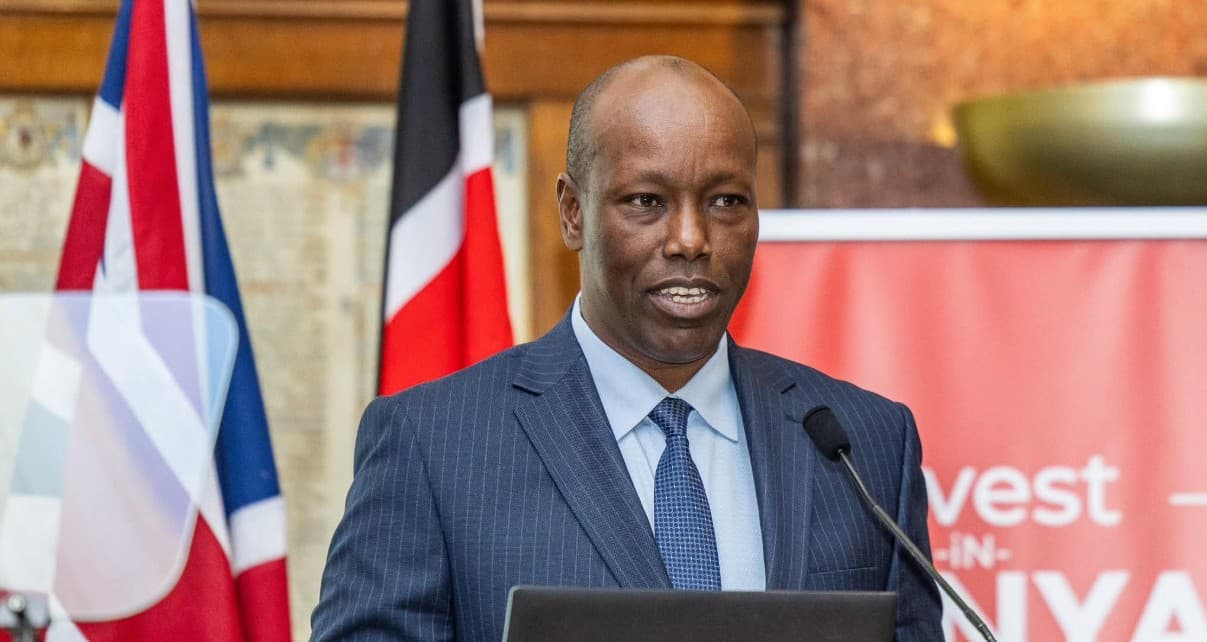We're loading the full news article for you. This includes the article content, images, author information, and related articles.
Kenya protests Tanzanian levies it says violate EAC rules and chill cross-border investment.

Nairobi, Kenya – August 1, 2025
Kenya has strongly protested Tanzania’s introduction of new taxes targeting non-citizen businesses and the blacklisting of foreign-owned small and medium-sized enterprises (SMEs) — calling the measures a violation of the East African Community (EAC) Common Market Protocol and a direct threat to regional economic integration.
Speaking at a press conference in Nairobi, Trade Cabinet Secretary Lee Kinyanjui criticized the new Tanzanian policies as “protectionist and discriminatory,” warning that they could disrupt over Ksh 297 billion in annual Kenyan exports to the regional bloc.
“These new levies and licensing restrictions amount to economic sabotage within a common market that is meant to facilitate—not hinder—cross-border trade,” said Kinyanjui. “We urge the EAC Secretariat to take immediate action to safeguard the spirit and letter of our integration agenda.”
According to Kenya’s Ministry of Trade, Tanzania has recently imposed:
A 10% excise tax on select goods imported or distributed by foreign-owned firms,
A 15% industrial development levy,
And a controversial business licensing order that restricts participation in certain sectors to Tanzanian citizens only.
The blacklisting of non-citizen SMEs from retail, agri-trade, and logistics sectors has drawn sharp criticism from Kenyan exporters, who say their operations in Arusha, Mwanza, and Dar es Salaam are now at risk.
The Kenya Private Sector Alliance (KEPSA) has also weighed in, warning that these measures are disrupting supply chains, raising costs for regional consumers, and jeopardizing thousands of jobs supported by intra-EAC trade.
Under the EAC Common Market Protocol, partner states are obligated to ensure the free movement of goods, persons, services, and capital. The Protocol, ratified in 2010, prohibits discriminatory taxation and licensing practices against citizens or businesses of other member states.
CS Kinyanjui said Kenya has officially lodged a complaint with the EAC Council of Ministers and is requesting the convening of a special summit to resolve the impasse.
“We will not allow the gains made in regional integration to be eroded by unilateral decisions. If unchallenged, this could trigger retaliatory restrictions and unravel decades of diplomatic and economic progress,” he warned.
Tanzania is Kenya’s second-largest trade partner in the EAC after Uganda. According to the Kenya National Bureau of Statistics (KNBS), bilateral trade between the two nations was valued at over Ksh 104 billion in 2024, with Kenya exporting pharmaceuticals, machinery, and processed foods, and importing minerals and grains.
Trade experts have cautioned that unless the dispute is resolved diplomatically, it could escalate into a non-tariff barrier standoff, further weakening investor confidence in the region.
In the past, similar tensions have flared between EAC members — notably Rwanda and Uganda in 2019, and Kenya and Uganda over sugar and dairy products.
Kenya is now calling for:
Immediate suspension of the Tanzanian levies and SME restrictions
A joint EAC verification mission to assess compliance
Fast-tracking of the EAC Dispute Settlement Mechanism, which has remained underfunded and underutilized
EAC Secretary-General Dr. Peter Mathuki has not yet publicly responded to Kenya’s concerns, but insiders say the Secretariat is preparing a brief to table before the Council of Ministers.
As pressure mounts, Nairobi is signaling that regional diplomacy will remain its first course of action—but has not ruled out reciprocal measures if the issue is not resolved promptly.
Keep the conversation in one place—threads here stay linked to the story and in the forums.
Sign in to start a discussion
Start a conversation about this story and keep it linked here.
Other hot threads
E-sports and Gaming Community in Kenya
Active 9 months ago
The Role of Technology in Modern Agriculture (AgriTech)
Active 9 months ago
Popular Recreational Activities Across Counties
Active 9 months ago
Investing in Youth Sports Development Programs
Active 9 months ago
Key figures and persons of interest featured in this article